BB: We're certainly looking forward to getting out and working with the Eagles today. Again, this will be a good opportunity to evaluate our team, both individually and scheme-wise. Chip [Kelly] and his staff have been great to work with, as they were last year. I really like the way we've got things formatted and the way we've been able to work together and lay it out. It should be a good opportunity for our team; looking forward to it.
Q: Pat Shurmur was very complimentary of Danny Amendola from when he was with the Rams. How pleased have you been with his progress so far in camp?
BB: He's done fine. He's done well. He's been consistent. Still, we have a lot of things to work on – everybody, all phases of our game, and each individual, but I think we're getting there. He's done a good job.
Q: Last year during the joint practices, you said you thought Chip Kelly would have the Eagles in a competitive situation next year, meaning this year. Are you surprised that it happened as quickly as it did, with them winning the division their first year?
BB: No, I think Chip is a good coach, does a good job. They're a good football team. I think that the play that they got at quarterback last year was real good. I'm not sure that anybody totally saw that coming but that was a big part of it. They had a lot of explosive plays. They're very dynamic on offense and created more explosive plays than anybody in the league. They do a good job.
Q: How much have you talked to Chip, if at all, about maybe going longer today or altering days based on potential bad weather tomorrow?
BB: We've got our schedule and hopefully we'll be able to stick to it.
Q: You talk about how valuable practices are, there's basically a flood watch in effect for tomorrow, is there any consideration taken toward perhaps practicing Thursday?
BB: Yeah, we have a schedule for Thursday.
Q: Joint or separate?
BB: Yeah, we're working with the Eagles on Thursday just like last year. What am I missing?
Q: I didn't realize that.
BB: OK, sorry.
**
Check out our favorite photos from Patriots joint practice with the Philadelphia Eagles on Tuesday, August 12, 2014.

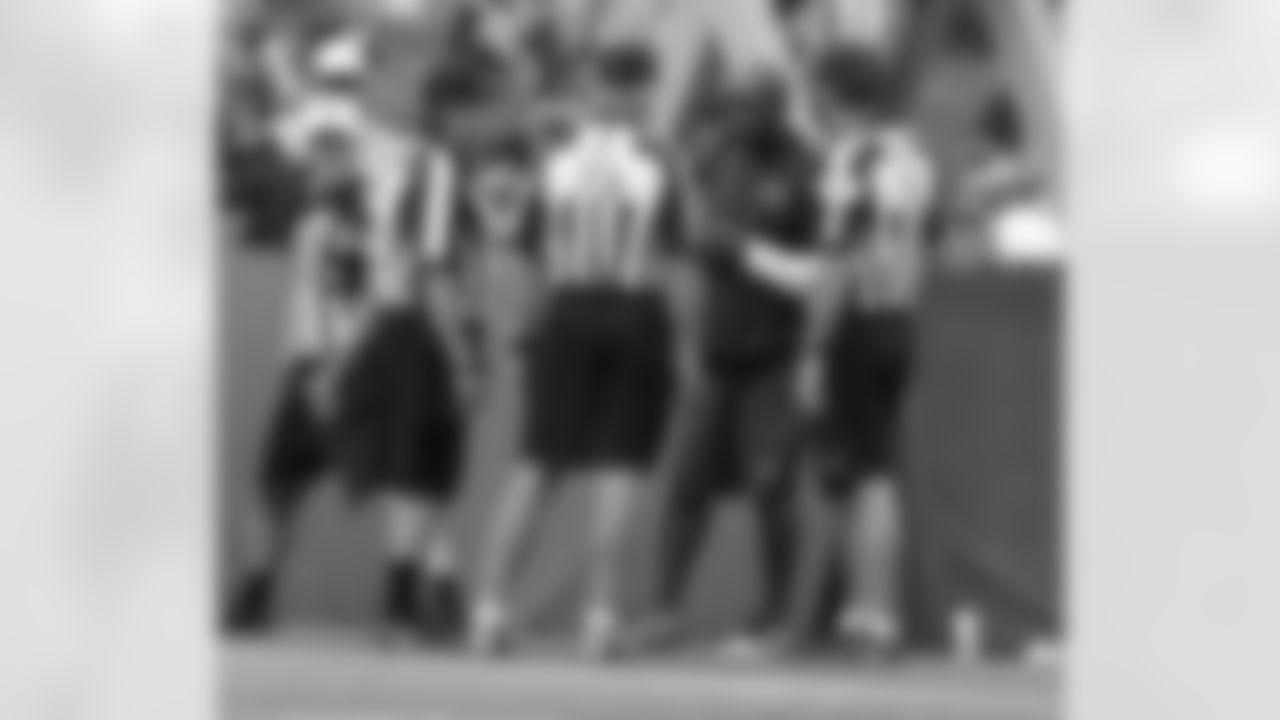

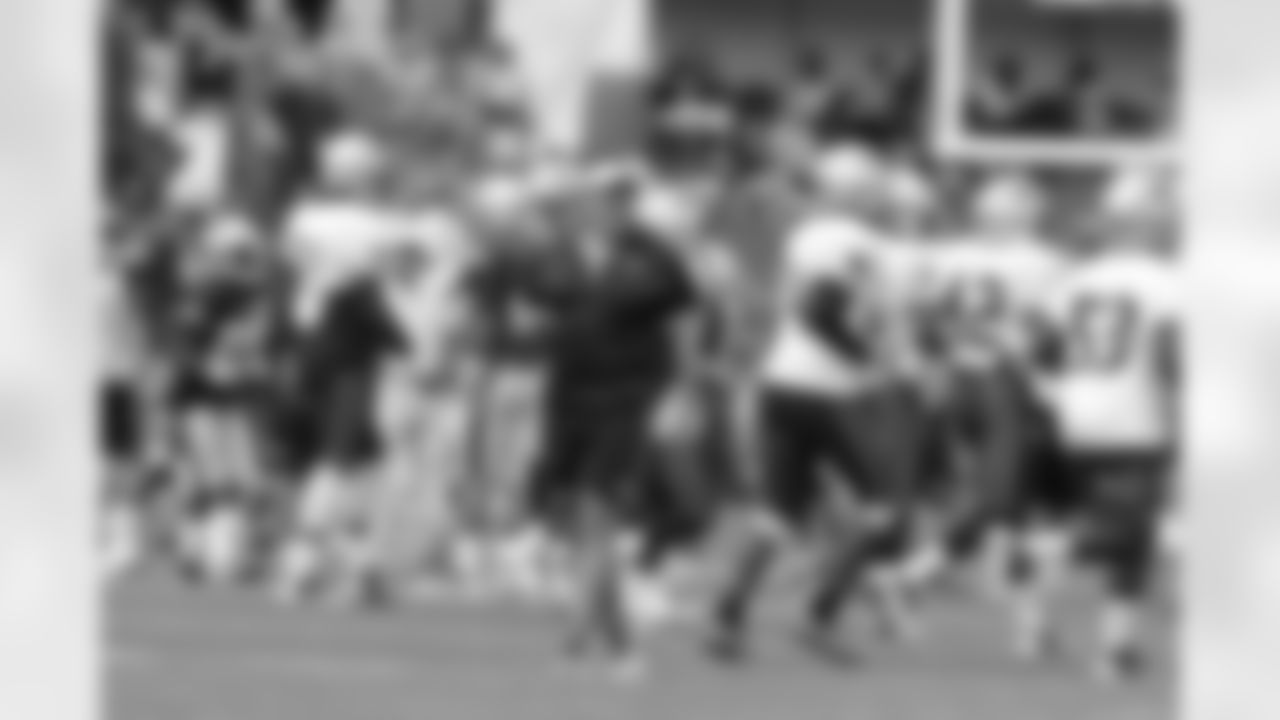

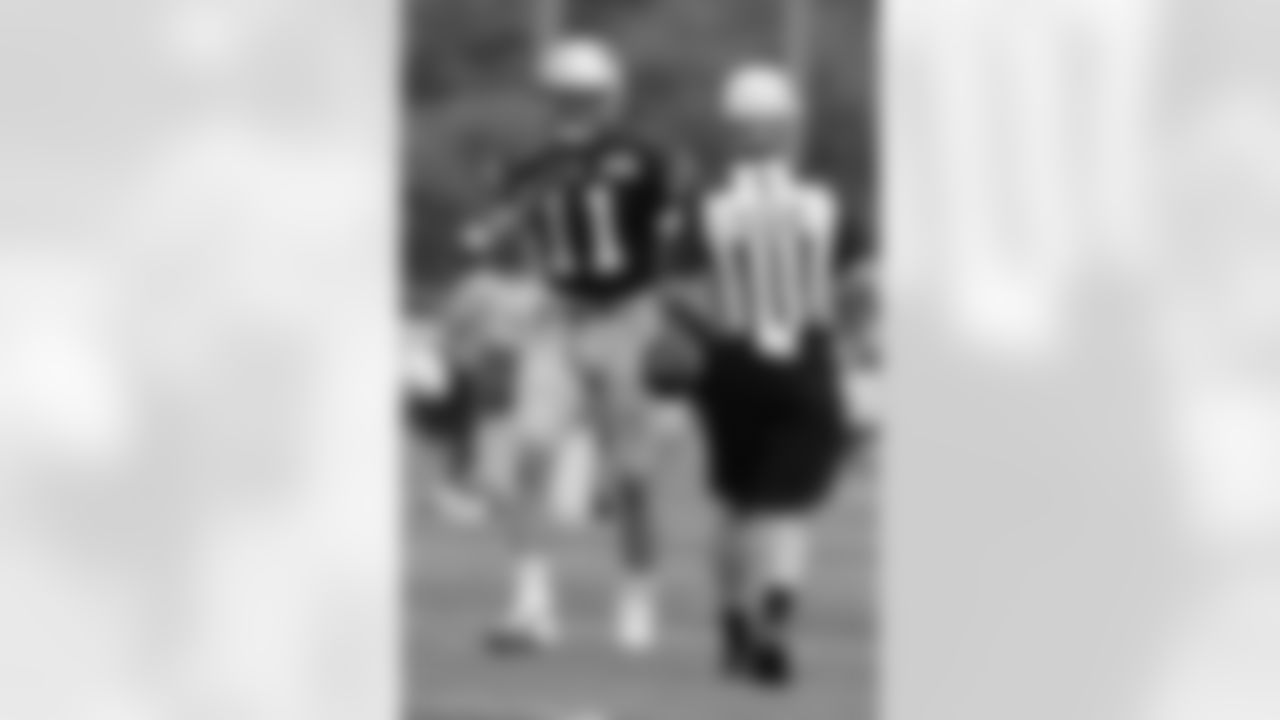
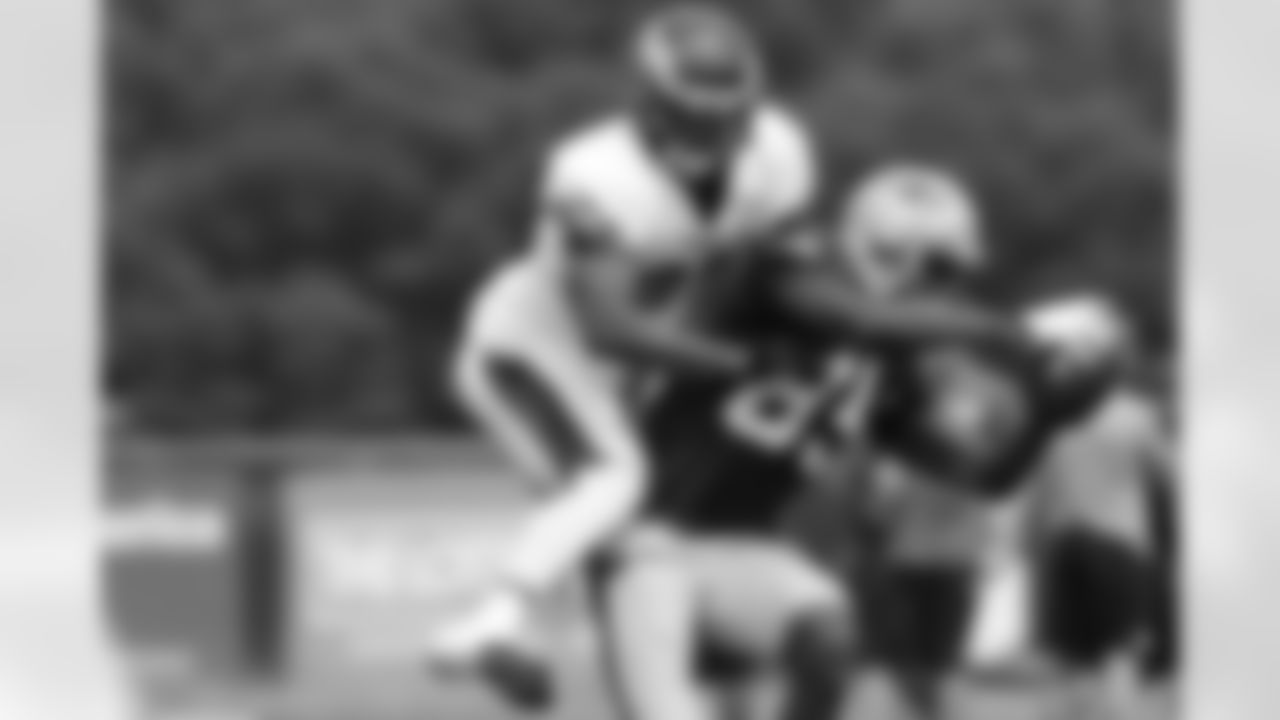
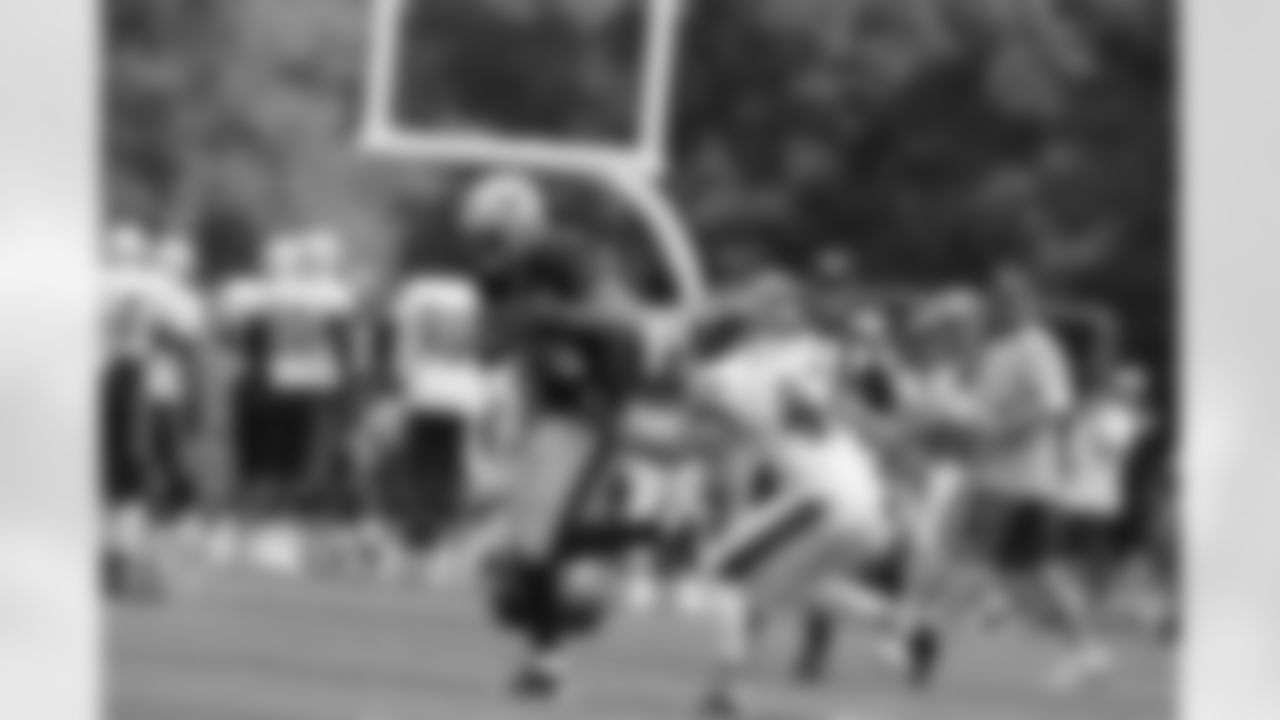
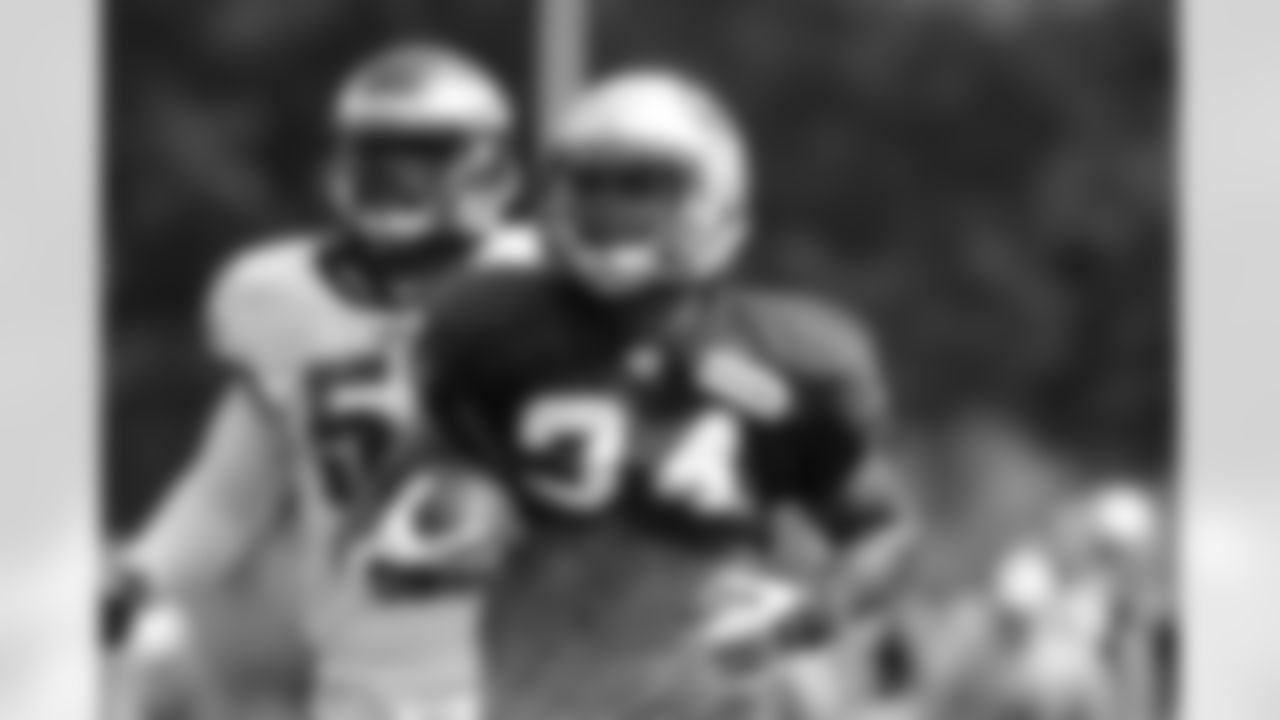
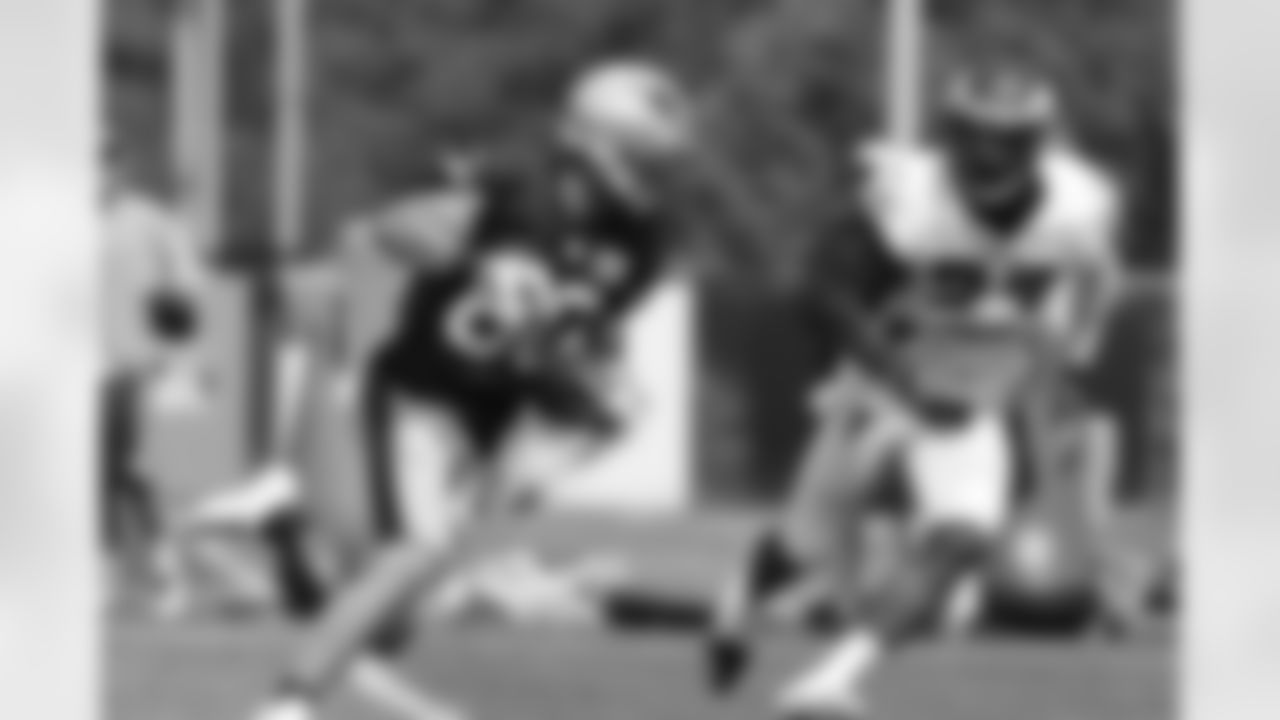
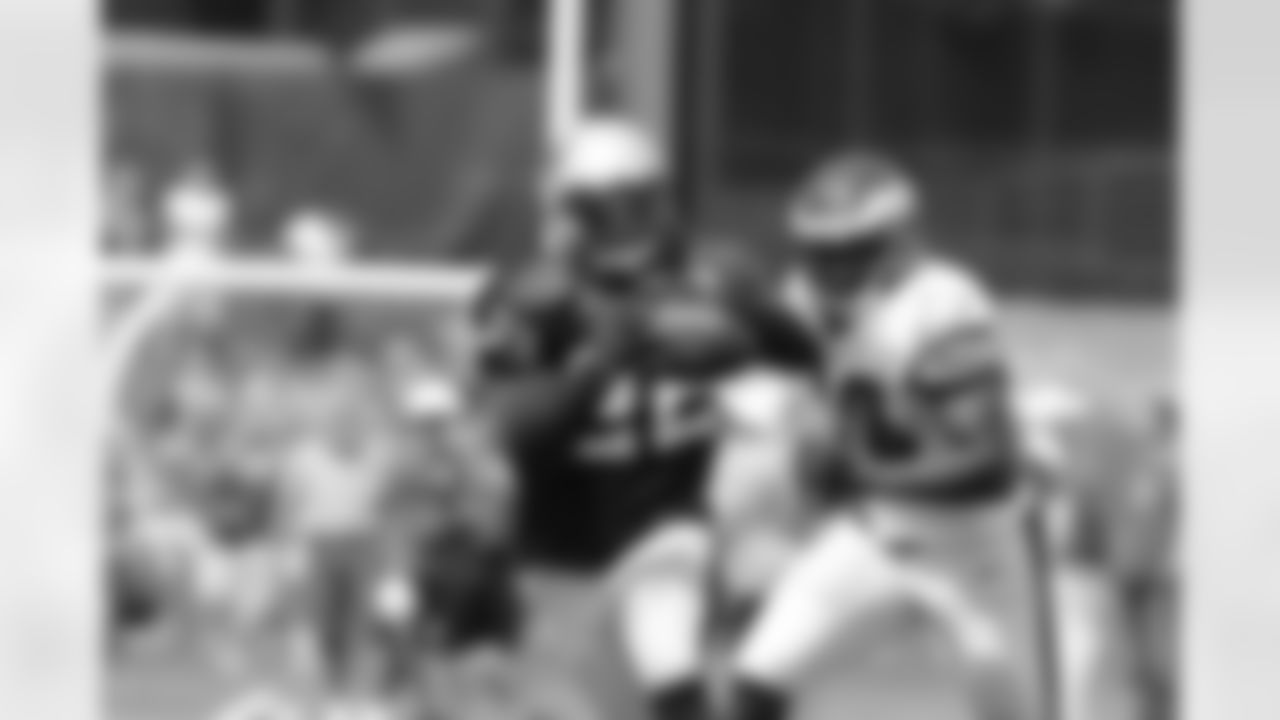
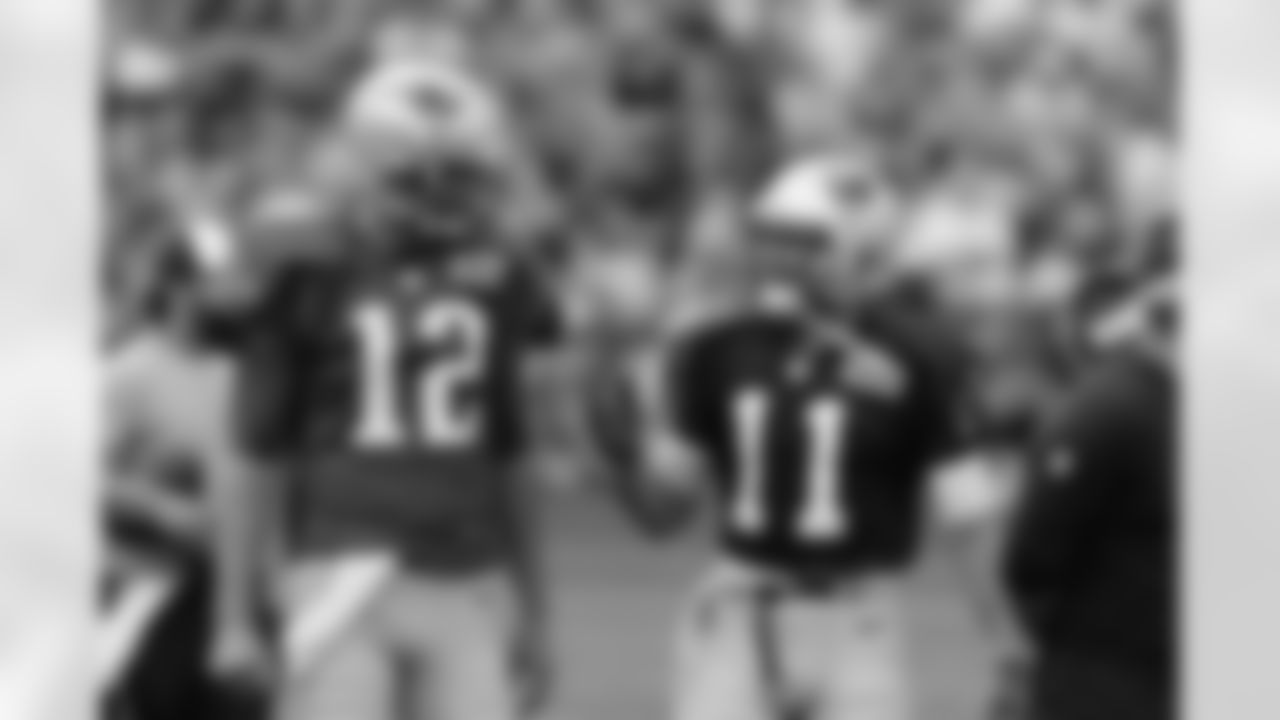
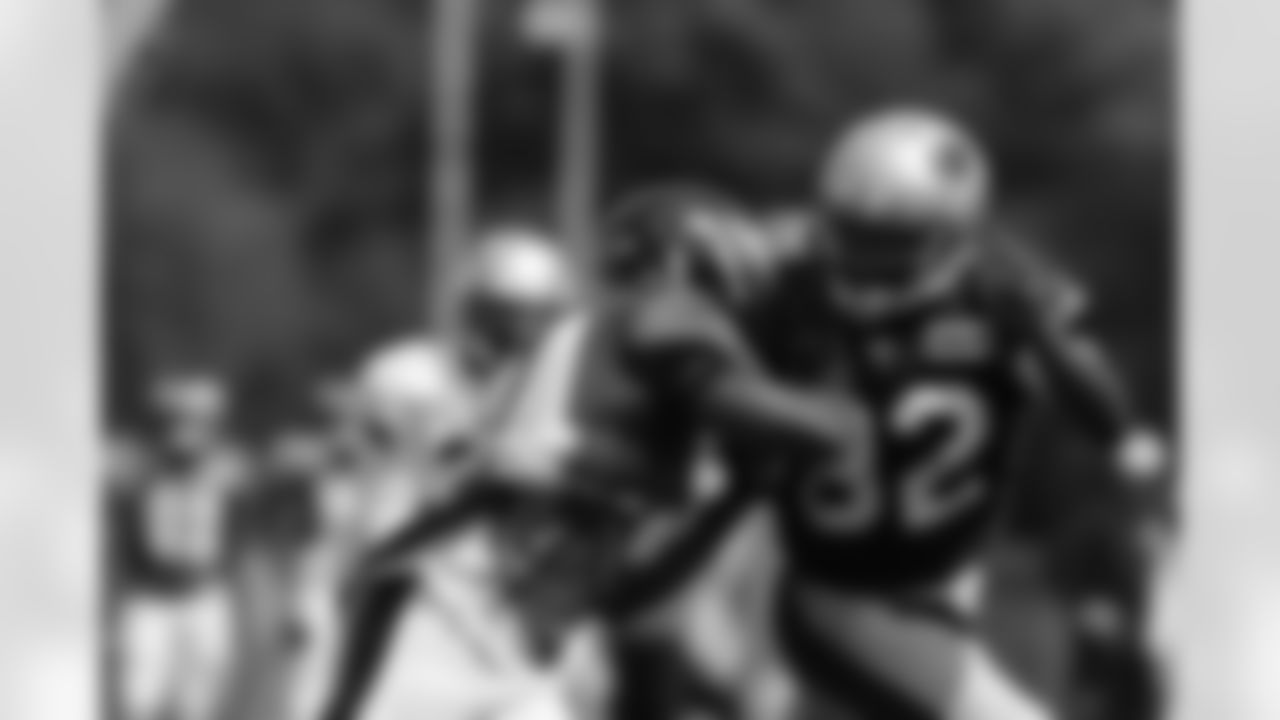
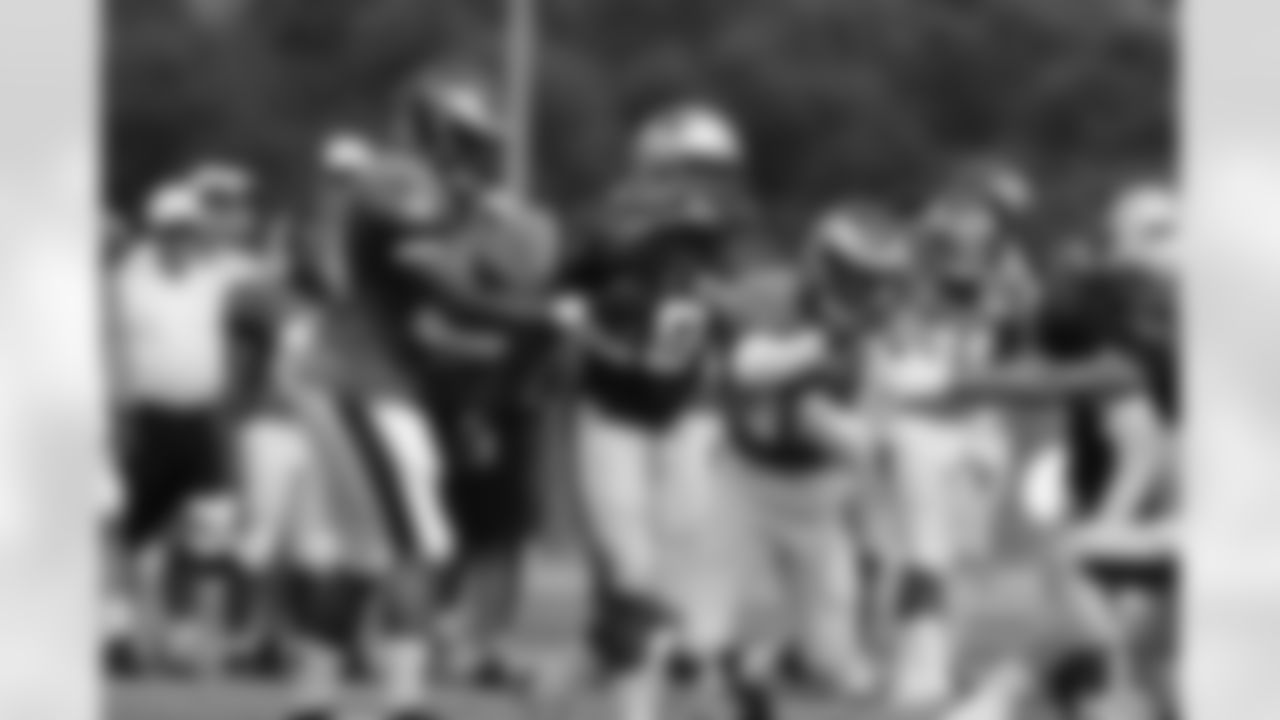
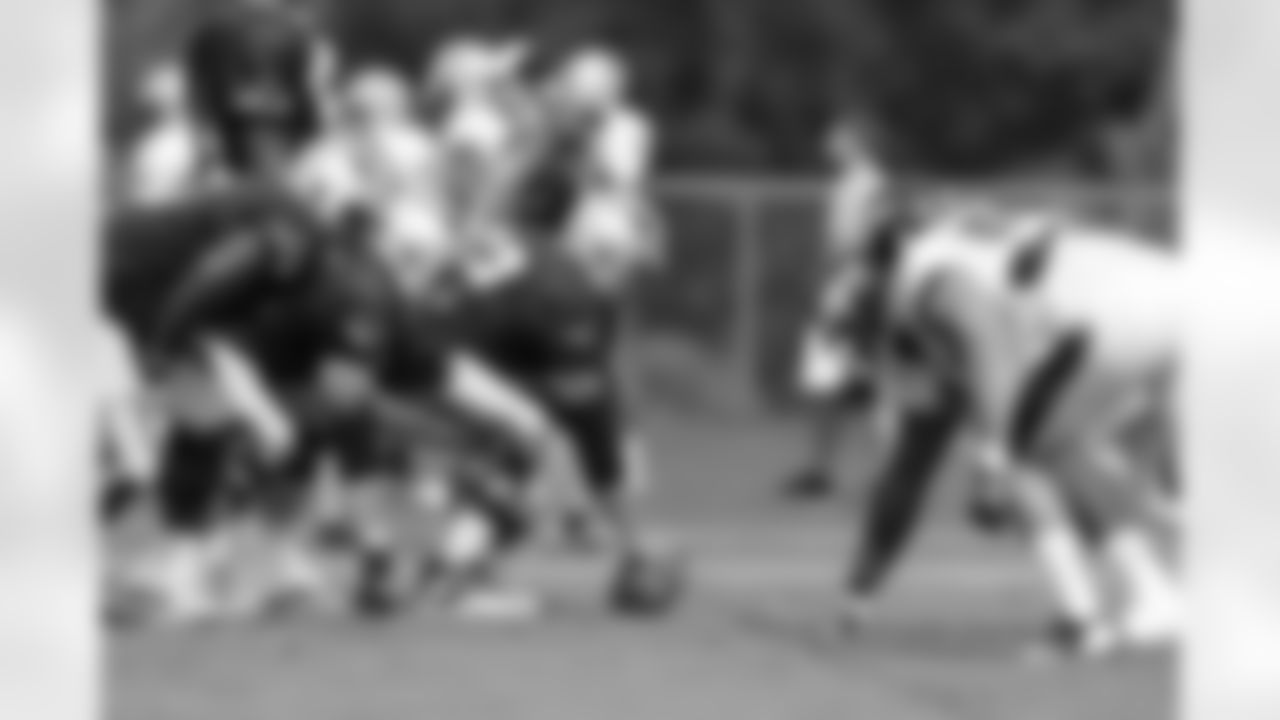





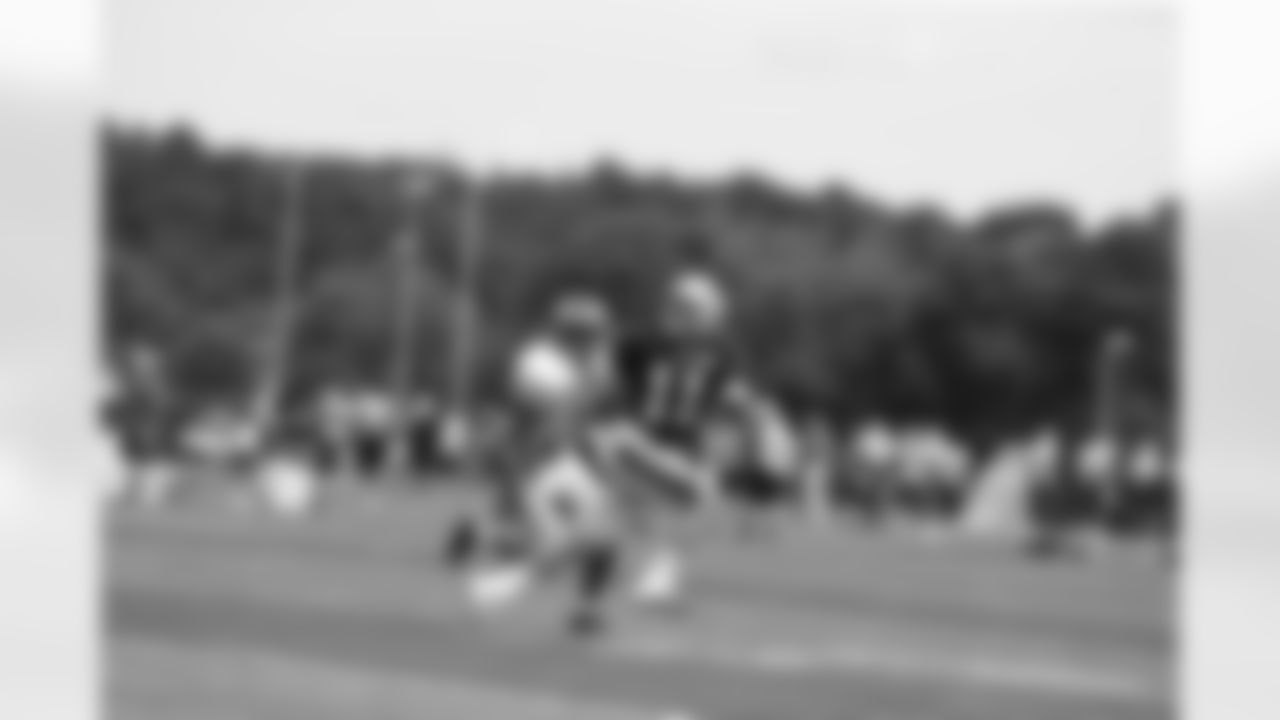

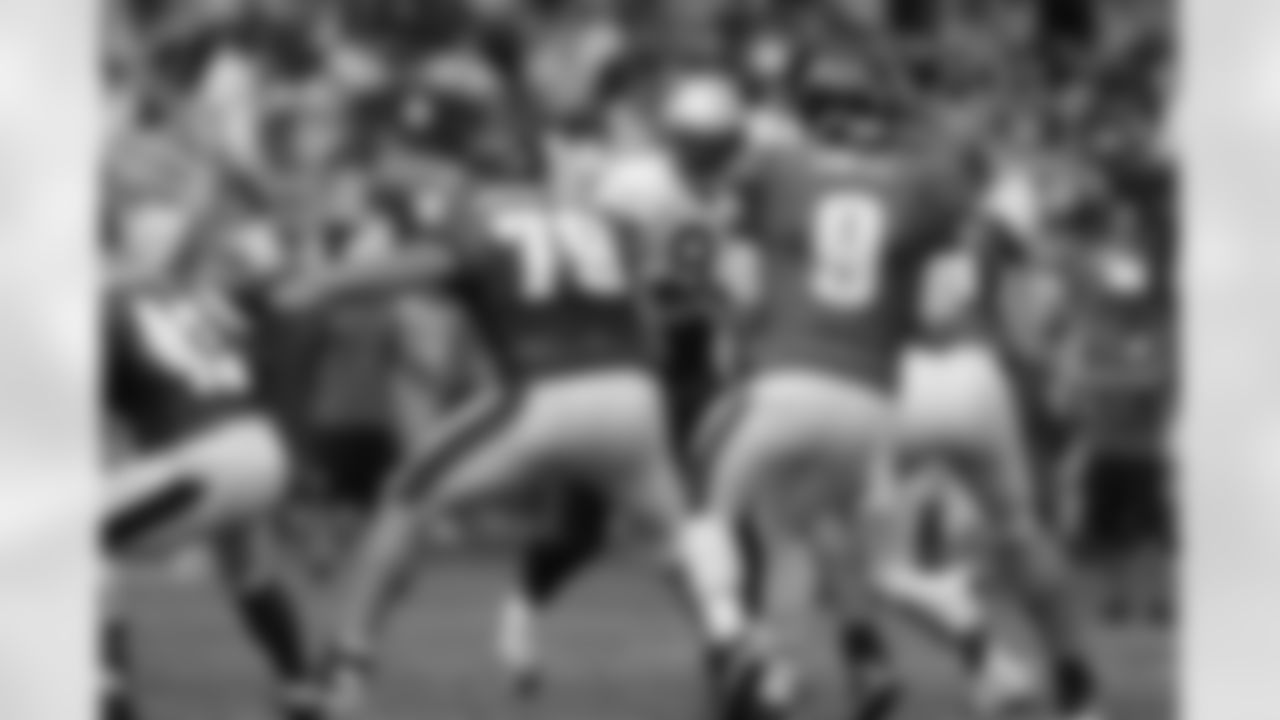


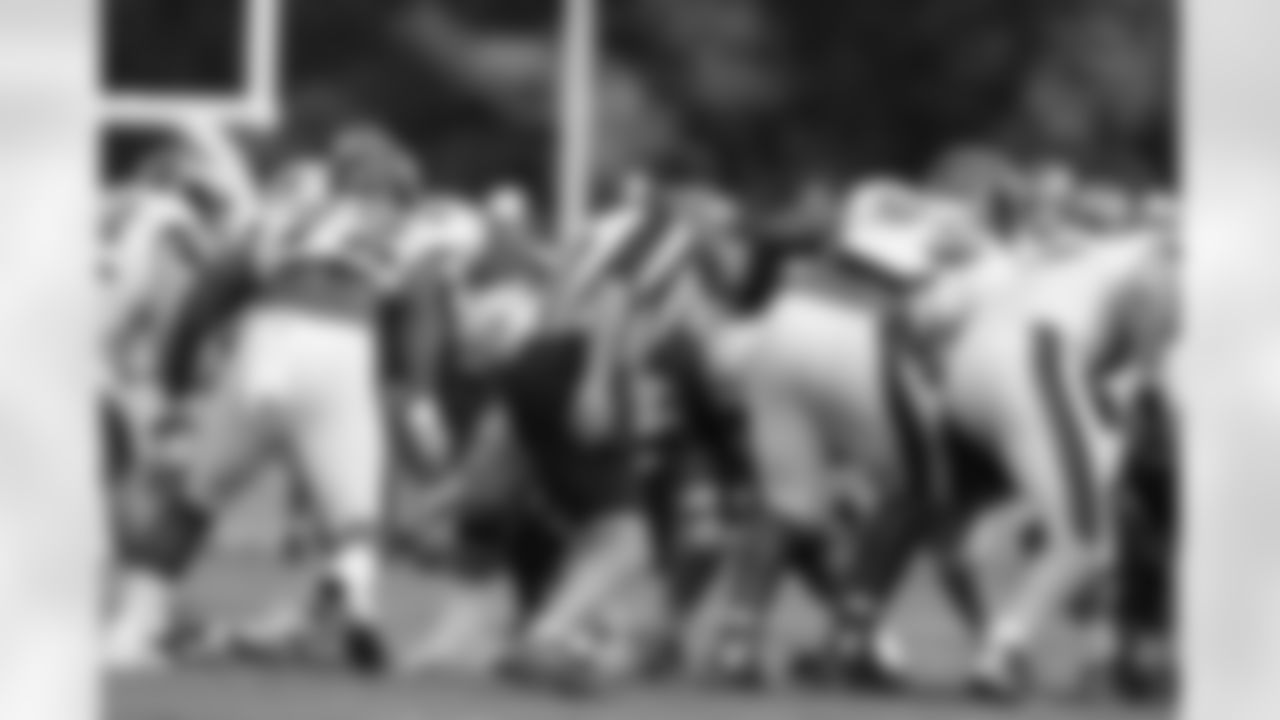

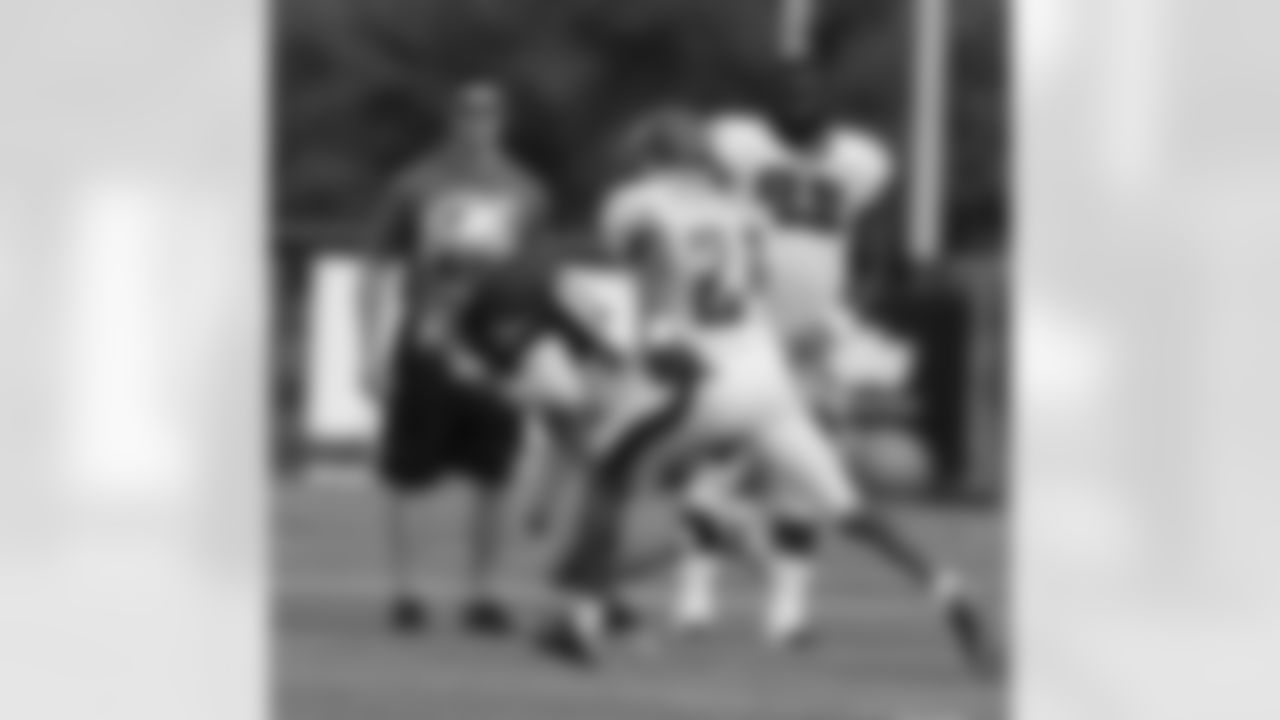
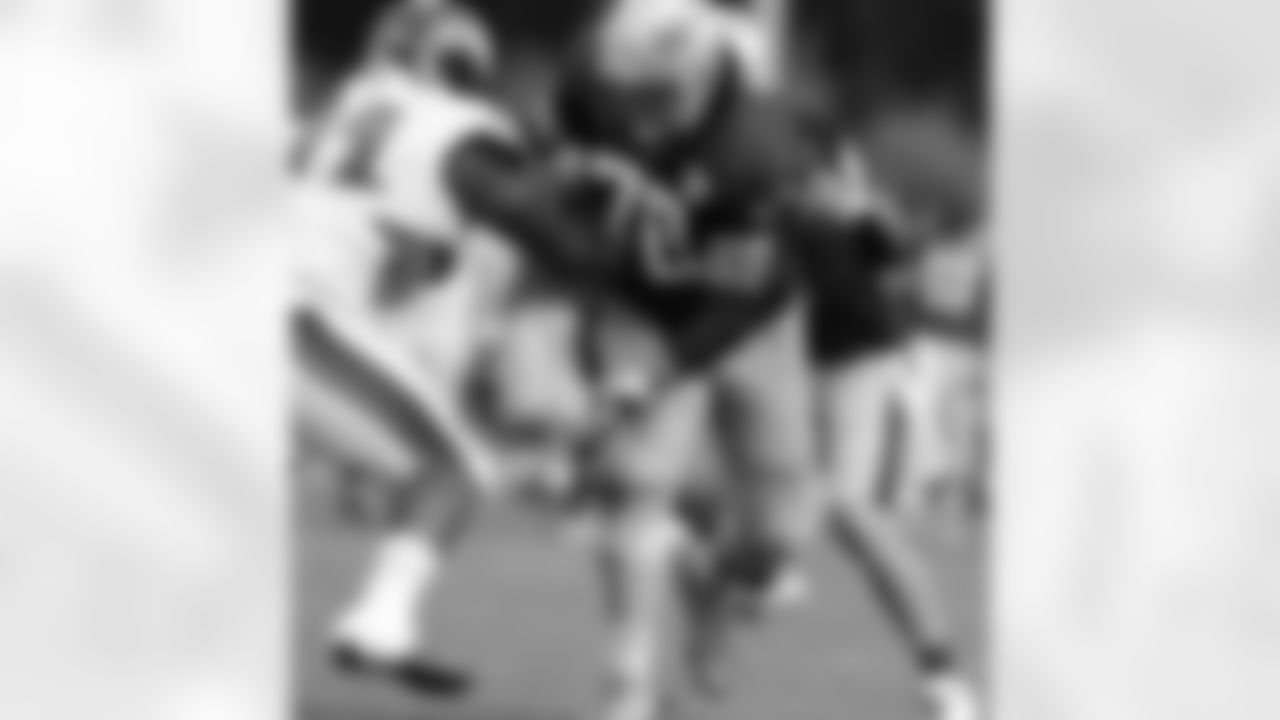
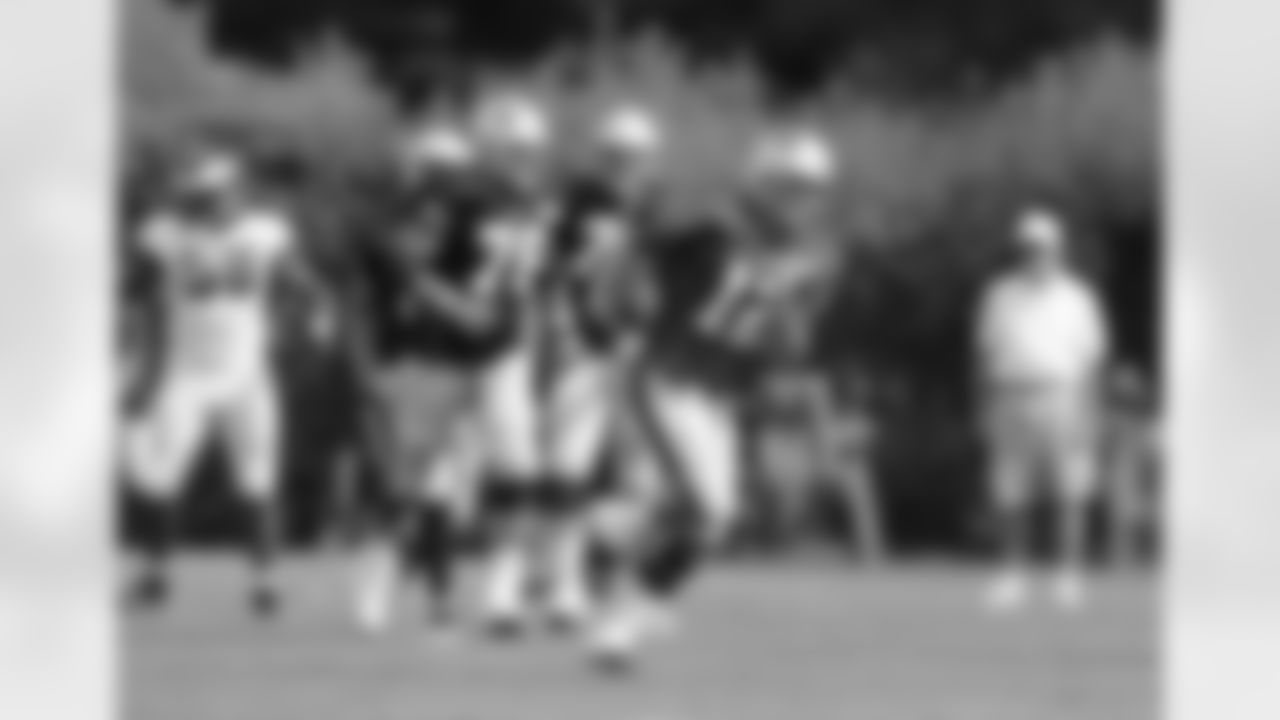


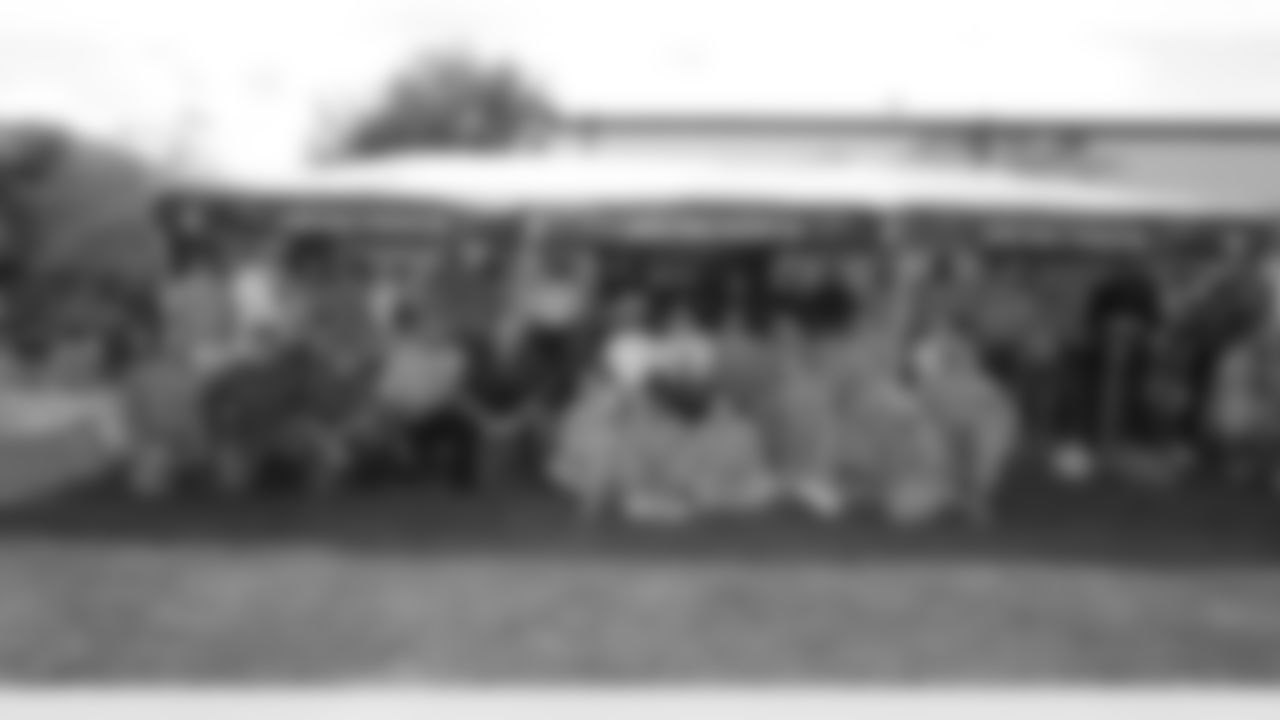
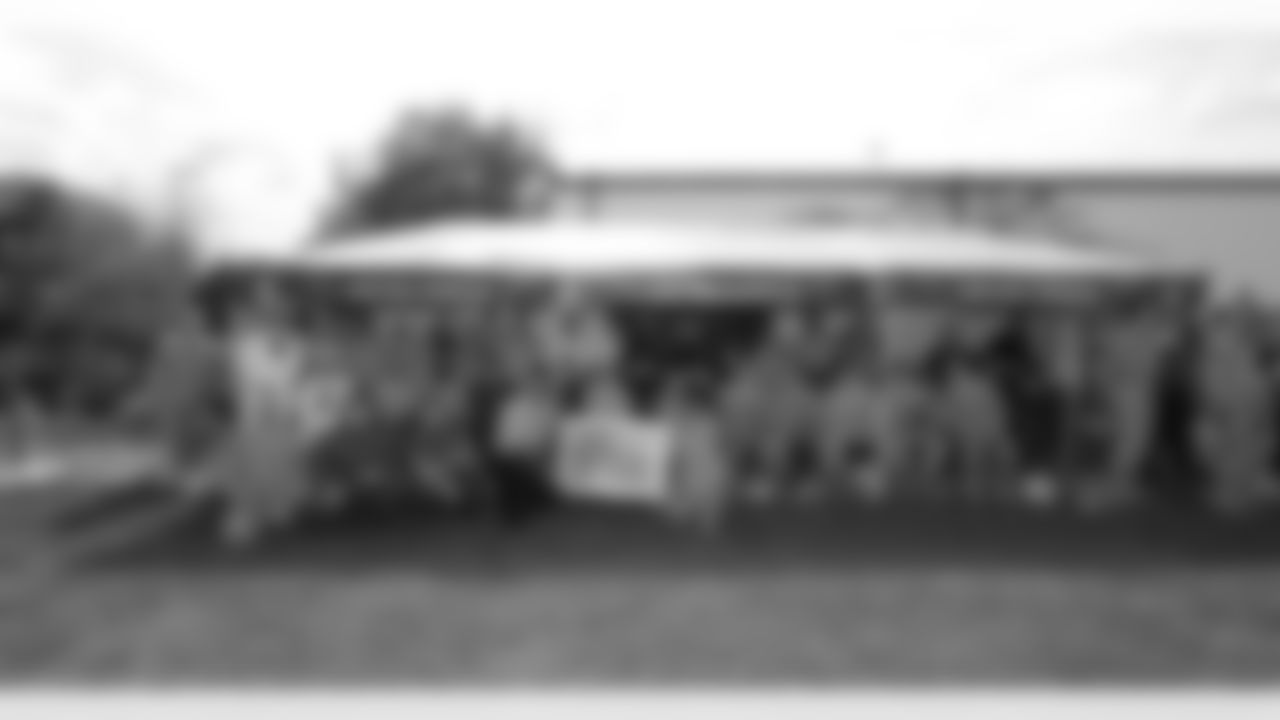




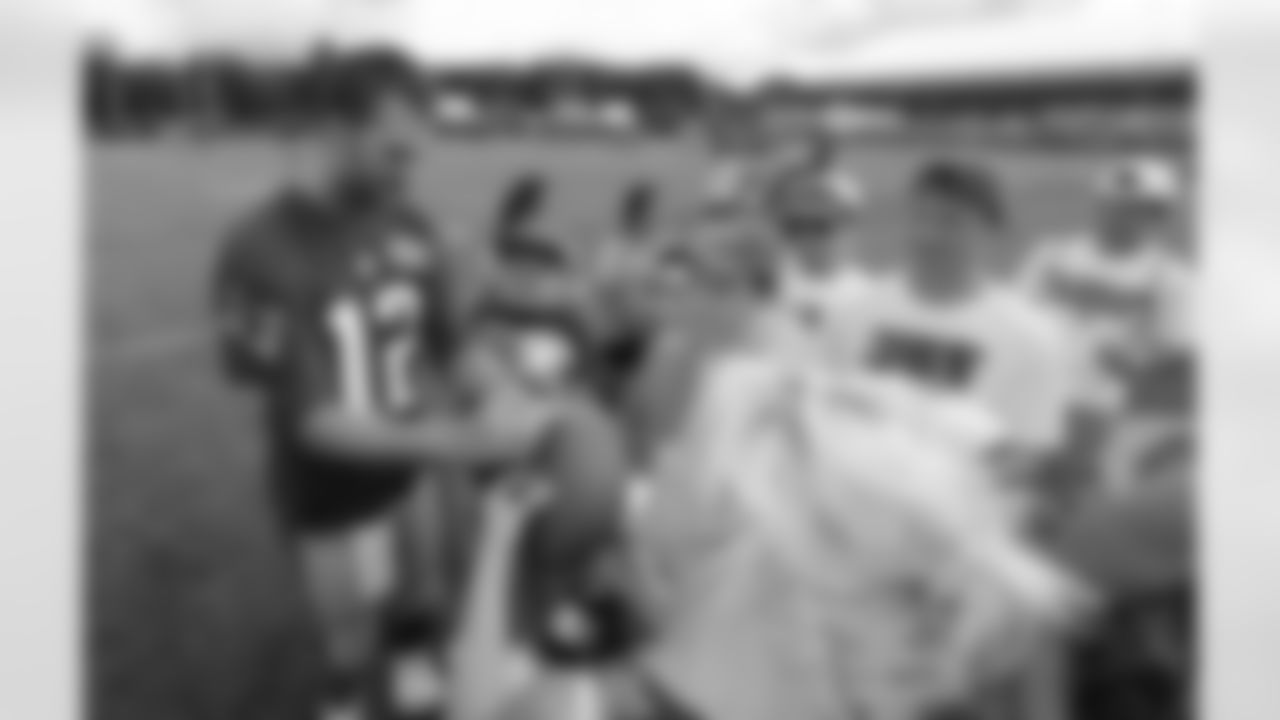

Robert Kraft, Bill Belichick & the ENTIRE Patriots team takes the Ice Bucket Challenge. Donate to help Strike Out ALS: http://www.alsa.org/
Q:** This is round two for joint practices for you this summer. Is the agenda the same every time or is what you got out of Washington last week different than what you're hoping to get out of Philadelphia because the team and personnel are different?
BB: Again, I think anything we do is good. What we're doing this week is a little different than what we did against Washington. I don't think it's better or worse. It's all valuable. Chip and I talked about what we wanted to do and I think we're both comfortable with that and I think it will be valuable for us. Last week was good too.
Q: Is there any benefit in terms of evaluation from going against a different team, practicing two weeks in a row versus practicing against a different team then yourselves and then the team third week?
BB: Again, every practice opportunity is valuable. If we didn't practice against anybody, those would still be valuable practices so I don't know.
Q: The Eagles are rare in that they have four linebackers that rarely come off the field. Can you talk about how the evolution of the position has changed throughout your career now that there are so many substitutions? How has that evolved to the point where it's beneficial for coaches to sub linebackers out for certain plays?
BB: I don't know. When we were at the Giants, when I was at the Giants and I coached there for, I was there for 12 years, but most of that time it was the 3-4 defense. It's not uncommon to leave your linebackers on the field. The guy usually comes at your nose guard and a lot of times your ends go to your inside rushers and your outside linebackers are your defensive ends. That's basically what they are in a 3-4. Your two inside linebackers are your two inside linebackers. I'm not saying you couldn't sub them but I think back to when I was at the Giants, I don't think, I can't remember too many times when [Carl] Banks, [Lawrence] Taylor, Pepper [Johnson] and Harry [Carson] were standing behind me but it wasn't very often. I'm not saying it never happened, but I'd say it wasn't very often. I think when you have a 3-4 defense, that's what you have. Your outside linebackers become your defensive ends; defensive ends usually become your inside rushers then your inside linebackers, if they're capable in the passing game, they're your inside linebackers. If you have a better inside linebacker in the passing game, then you probably sub them. But I don't see that as that unusual.
Q: Have you seen a lot of improvement out of Duron Harmon this year over last year?
BB: Yeah, definitely. Sure, absolutely. Yeah, much better understanding of what we do, much better understanding of what our opponents do. Better anticipation. He had a great offseason physically – bigger, stronger, faster, more explosive. Yeah, I would say it's all positive; all above last year's bar.
Q: Your friend Jon Bon Jovi is a finalist to buy the Bills. Would you welcome him as a potential owner in this division?
BB: I have a great friendship with Jon but whatever his business situation is or isn't, I really don't know very much about. I think you'd have to talk to him about that. But Jon has been a great friend for a long time and I'm sure he'll always be a close friend.
Q: Would you welcome him at practice still?
BB: I think anything like that is pretty premature at this point. I don't think anything has taken place that I know of. We're getting into a lot of hypothetical questions here.
Q: When you think about different offensive systems and some of the systems you'll face this year, how much of a nice trial run is it to work against a team that maybe there are some similarities with what you'll practice out here against and play against on Friday?
BB: I think any team that you work against, there are going to be similarities. Certainly working against Washington last week, there's going to be some application of what we did against them to other teams. I'm sure the same will be true with Philadelphia or anybody else we practice against. I don't think that's really at the forefront of it. Right now we're just trying to get better and evaluate our team and build on where we're at. That's really where our focus is. I don't know too much about trying to over-strategize at this point. I think we have to try to take our opportunities to improve against a good football team and get better as a team from a scheme standpoint and get better individually. That's, I think, really what the emphasis is on. I don't think this is a big game planning week. I just don't see it that way.
Q: With multiple teams running up-tempo offenses in the league – it seems like more teams are doing it – is there something about the current state of the NFL that allows teams to do that or it more random?
BB: No, I don't think it's that random. I think there are advantages to it and evidently other teams and offenses, offensive coordinators, see some of those advantages and are trying to do it. When you're a defensive coach, whatever they run, you have to defend. As an offensive coach, you have control over those things. You don't have any control over them defensively. All the teams that play opponents that are inclined or have the ability to run those type of offenses that you're talking about, we have to be prepared to defend them. Certainly we have plenty of them on our schedule, it appears anyway. This is a good opportunity to work on it. We do it some ourselves so when we work against ourselves we see that. I mean, look, there's a lot of things you have to be prepared for. There's not any one thing. That's one of the things that's in a big basket that you have to deal with.
Q: What are some of the advantages to running the up-tempo offense?
BB: It depends on what you're trying to do but certainly it limits some of the things a defense can do. But it limits some of the things an offense can do too. It's a tradeoff. Maybe they're doing less, you're doing less. Can you execute at your pace better than they can execute at that pace? That's really what it comes down to. If you can get your team to the point where you can, then it's an advantage. If you can't, then I'm not sure what the advantage is.
Q: In the times you saw the Eagles last year, how did the offense compare schematically to what Chip did at Oregon?
BB: I didn't really study them a lot last year. They weren't on our schedule and we played them in the first preseason game so that wasn't a team I focused a lot on. I focused on the teams that we played. But we saw them some in the offseason and obviously some a little bit against Chicago but I'd say they're a very explosive team. They created a lot of big plays, a lot of explosive plays, which is due to a number of factors. I would say that was the most impressive thing and thing that kind of jumps off at you when you watched them in 2013 was their ability to create huge chunks of yardage in the running game and in the passing game.
Q: Is their explosion due to scheme or personnel?
BB: I think you have to give Chip a lot of credit for that. There are a lot of other teams that have good players too. They produce more big plays than anybody else so I think certainly his scheme has something to do with it. But, of course they have great players. They have a great running back, quarterback had a great year, they had a receiver that had a big year, good tight ends, good offensive line, healthy offensive line. Those guys played virtually every snap. There are a lot of things that go into it. I don't think you can just point to one guy or one play or anything. It was the whole combination of the staff, the players, the execution, play calling, all the above. Bottom line is though it's good. That was the bottom line.
Q: How important is it for the defense to see a little bit of read-option type of offense especially since it's something a little bit different than what you guys are running in practice every day?
BB: We have to prepare for all the things that we're going to see. Whatever we can see in the preseason or whatever, maybe we can build a base on that going forward. If we don't see it then we'll deal with it when we get to it. I don't, I might be wrong here but I don't really see Philadelphia's quarterback running a lot of keep option plays. Maybe I've missed them, I don't know, but I don't really see him as an option quarterback that keeps the ball a lot. I mean, how many times did he carry the ball last year? 40?
Q: 57.
BB: 57, OK. So, you've got some scrambles, you've got some quarterback sneaks but I wouldn't really say this is a quarterback keep option offense. I just wouldn't characterize it that way myself.
Q: When you practiced against them last year, Nick Foles and Mike Vick were still battling. Did you get an impression of Nick last year?
BB: Yeah, obviously it's two good quarterbacks – Mike and Foles. They're two good quarterbacks. I'm just saying at that point in time you're running your plays, they're running their plays, you're not trying to game plan or scheme or anything else. The year that Foles had relative to production, touchdowns, interceptions, his overall handling a team was great. It was outstanding. I don't know that at that point [when] we were there at training camp, I would have necessarily said that I saw that coming but you see a good football player. He had a great year.
Q: The Eagles are one of the few teams that use the two-gap 3-4. What are the advantages of that front?
BB: I think there are a lot of teams that do that. The advantages of it are if you play it well I think you have more ability to play some safety coverages. That's the main thing. It just comes down to a numbers game. Play a one-gap defense then you need another player for the extra gap, if you will. If you play some form of two-gap defense, whether it's 3-4, whatever it happens to be, if you play some form of two-gap defense then you can theoretically match your six against their six, your seven against their seven, whatever it is and you don't always need an extra player for an extra gap. The teams that don't two-gap a lot of times have linebackers responsible for two gaps. So it's the same numbers, different principle though. But you've got a big, strong, physical team then that's what you need to play those techniques. I'd say those are the type of players they have.







































